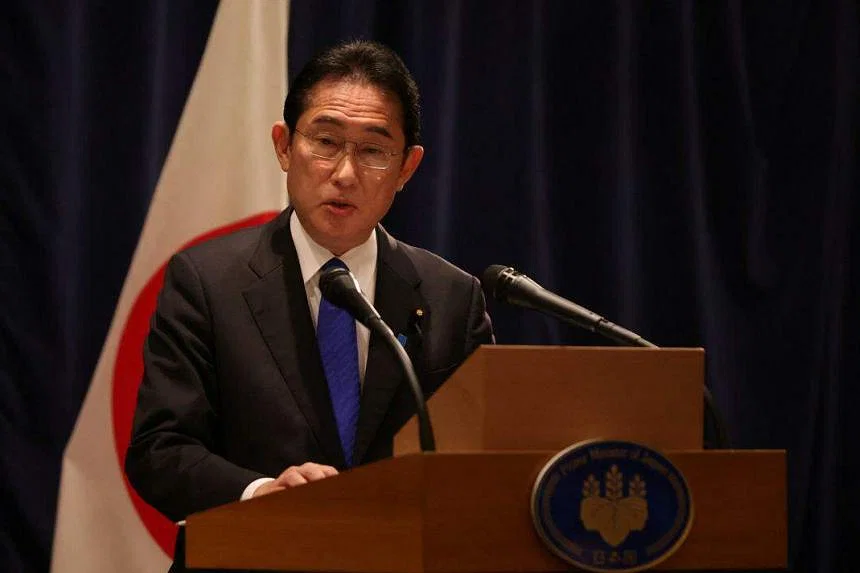February 6, 2023
TOKYO – Japanese Prime Minister Fumio Kishida’s separation of work and personal life has come under scrutiny over his son’s sightseeing and shopping while on official duty.
Mr Kishida named his eldest son Shotaro, 32, as one of his executive secretaries in October 2022, with an eye on grooming him as his successor. The appointment had set off accusations of nepotism, even though hereditary politics is common in Japan.
The latter had accompanied his father on a week-long, five-country visit to France, Italy, Britain, Canada and the United States in January.
But a controversy erupted after the weekly Shukan Shincho reported that he had gone sightseeing at tourist hotspots and shopping using a government car.
PM Kishida said his son was following his instructions and acting within his job as a secretary.
The photographs at tourist attractions are to be posted on his official social media accounts, the prime minister said.
And the souvenirs – which reportedly included neck ties from Italian designer brand Giorgio Armani that were bought from the Harrods department store in London – were given to Cabinet ministers and paid for “out of my own pocket”, PM Kishida emphasised.
He added: “Purchasing souvenirs for the Prime Minister can be included in the normal duties of an executive secretary.”
Top government spokesman Hirokazu Matsuno told a news conference that this was a “common practice dictated by etiquette”.
Dr Sota Kato, a former trade ministry bureaucrat, told The Straits Times that it had only become an issue given the blood ties between PM Kishida and his secretary.
“Politicians buy souvenirs when they travel overseas,” he said, adding that he has been on the receiving end as well.
“In many cases, the secretary would be tasked with buying the souvenirs, although there are times when the diplomatic mission would do so instead,” added Dr Kato, who is now a research director at The Tokyo Foundation for Policy Research think-tank.

Japan PM Fumio Kishida said his son was following his instructions and acting within his job as a secretary. PHOTO: REUTERS
He said the question that has been overlooked was whether any action or purchase was done above an amount that would warrant a declaration.
“In the absolute strictest sense, buying personal souvenirs using an official car would be a mix of work and private matters,” he said. “But like in the corporate world, there is a monetary value within which such actions can be permitted.”
The issue comes as PM Kishida’s Cabinet approval ratings have fallen over a series of ministerial scandals amid a widening perception that he is a weak leader.
Mr Hiroshi Kajiyama, deputy secretary-general of the ruling Liberal Democratic Party, said: “We need to take into consideration that people are watching our actions and act accordingly.”


